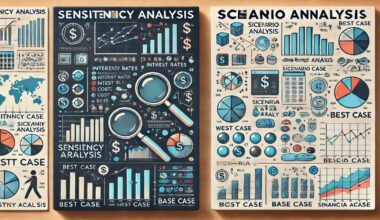Summary: Choosing the right Data Science program is essential for career success. This guide covers key factors such as curriculum evaluation, learning formats, networking, mentorship opportunities, and cost considerations to help you make an informed choice.
Introduction
Choosing the right Data Science program is a crucial step for anyone looking to enter or advance in this rapidly evolving field. With the increasing demand for data-driven decision-making across industries, a solid educational foundation in Data Science can significantly enhance your career prospects.
This blog will guide you through essential considerations when selecting the best Data Science program for your needs.
Key Takeaways
- Over 25,000 Data Science positions available across various industries.
- Average salary for Data Scientists is around ₹13,00,000 annually.
- Data Science skills apply to finance, healthcare, e-commerce, and technology.
- Evolving field ensures ongoing education and skill enhancement opportunities.
- Data Scientists drive data-driven decisions, influencing business and societal outcomes.
Read More: 9 Best Data Science Programs For Working Professionals
Why Should One Should Choose a Data Science Course?
Pursuing a Data Science course in India offers numerous advantages, making it an attractive option for students and professionals alike. Here’s a detailed overview of why one should consider enrolling in a Data Science program, particularly within the Indian context.
High Demand for Data Science Professionals
The demand for Data Scientists in India is skyrocketing. According to industry reports, there are over 13277 job openings on platforms like Naukri.com and 14,000 on LinkedIn specifically for Data Science roles. This surge is fuelled by the increasing reliance on data-driven decision-making across sectors such as finance, healthcare, e-commerce, and technology.
Lucrative Salary Packages
Data Science roles are among the highest-paying jobs in India. The average salary for a Data Scientist is approximately ₹13,00,000 per annum, with entry-level positions starting around ₹6 lakhs and experienced professionals earning upwards of ₹20 lakhs. This high earning potential makes Data Science an appealing career choice.
Versatility Across Industries
Data Science skills are highly transferable across various industries. Professionals trained in Data Science can find opportunities in finance, healthcare, marketing, and technology sectors. This versatility not only broadens career options but also allows individuals to explore different fields based on their interests.
Continuous Learning and Growth
The field of Data Science is constantly evolving with new tools and technologies. Enrolling in a Data Science course keeps you updated on the latest advancements, such as machine learning algorithms and data visualisation techniques. This continuous learning environment fosters professional growth and adaptability.
Cutting-Edge Technology Exposure
Data Science courses often provide exposure to cutting-edge technologies and methodologies. Students learn to work with tools like Python, R, SQL, and machine learning frameworks, which are essential for analysing complex datasets and deriving actionable insights1. This hands-on experience is invaluable in today’s tech-driven job market.
Strong Career Prospects
The future looks bright for Data Scientists in India. The market for big data is projected to reach $3.38 billion by 2029, growing at a CAGR of 7.66%. With an expected 11 million new job openings by 2026, pursuing a Data Science course can significantly enhance your employability and career trajectory.
Networking Opportunities
Data Science programs often facilitate networking opportunities through workshops, seminars, and collaborative projects. These connections can lead to mentorship opportunities and job referrals, further enhancing your career prospects.
Impactful Contributions
Data Scientists play a crucial role in helping organisations make informed decisions based on Data Analysis. By pursuing a course in Data Science, you can contribute to significant business outcomes and societal advancements through your analytical skills.
Steps to Follow When Choosing Data Science Program

Choosing the best Data Science program is crucial for your career success. This section explores essential considerations, including defining your career goals, evaluating curriculum, learning formats, networking opportunities, and mentorship, ensuring you make an informed decision tailored to your aspirations.
Define Your Career Goals
Before diving into program specifics, it’s vital to clarify your career aspirations. Are you aiming for a role as a Data Analyst, Machine Learning engineer, or perhaps a Data Scientist specialising in Artificial Intelligence?
Understanding your career goals will help you identify which program aligns best with your desired path. For instance, if you’re interested in Machine Learning, look for programs that offer specialised courses in this area.
Evaluate the Program Curriculum
A comprehensive curriculum is foundational to a quality Data Science education. Look for programs that cover essential topics such as:
- Statistics and Probability: Fundamental for Data Analysis.
- Programming Languages: Proficiency in programming languages like Python or R is crucial.
- Machine Learning: Courses should include both supervised and unsupervised learning techniques.
- Big Data Technologies: Familiarity with tools like Hadoop and Spark is increasingly important.
Programs should also offer elective courses that allow you to delve deeper into specific areas of interest, such as natural language processing or advanced analytics.
Consider the Learning Format
Data Science programs come in various formats—online, in-person, or hybrid. Your choice should depend on your learning style and personal circumstances:
- Online Programs: Offer flexibility and are often more convenient for working professionals.
- In-Person Programs: Provide opportunities for hands-on learning and networking.
- Hybrid Options: Combine the benefits of both formats.
Assess how each format aligns with your lifestyle and learning preferences.
Collaborate and Network
Networking is a crucial aspect of professional development in Data Science. Look for programs that encourage collaboration among students through group projects, hackathons, or community events. Engaging with peers can lead to valuable connections and insights into industry practices.
Additionally, programs that facilitate interactions with industry professionals can provide mentorship opportunities and enhance your job prospects.
Look for Mentorship and Career Support
A strong mentorship program can significantly impact your educational experience. Seek out programs that offer:
- Mentorship Opportunities: Pairing students with experienced professionals can provide guidance and industry insights.
- Career Services: Look for institutions that offer resume workshops, interview preparation, and job placement assistance.
These resources can be invaluable as you transition from education to employment.
Assess the Program’s Reputation and Reviews
Researching a program’s reputation is critical. Look at rankings from reputable sources and read reviews from alumni. Consider factors such as:
- Accreditation: Ensure the program is accredited by recognized bodies.
- Alumni Success: Investigate the career paths of graduates to gauge the program’s effectiveness.
Programs with strong industry ties often have better outcomes for their graduates.
Cost and Return on Investment (ROI)
Data Science programs can vary widely in cost. When evaluating potential expenses, consider:
- Tuition Fees: Compare costs across different institutions.
- Financial Aid Options: Look into scholarships, grants, or assistantships that may be available.
- ROI: Research average salaries for graduates of specific programs to assess potential returns on your investment.
A higher upfront cost may be justified if it leads to better job placement rates or higher starting salaries.
Hands-On Learning and Projects
Practical experience is essential in Data Science education. Programs should incorporate hands-on projects that allow you to apply theoretical knowledge to real-world problems. Look for:
- Capstone Projects: These often involve collaboration with industry partners and provide valuable experience.
- Internships: Programs that facilitate internships can enhance your resume and provide practical skills.
Engaging in hands-on learning helps solidify concepts and prepares you for challenges you’ll face in the workforce.
Flexibility and Self-Paced Options
Flexibility is key for many students balancing education with work or other commitments. Consider programs that offer self-paced options or part-time schedules. This flexibility allows you to tailor your education around your life while still making progress toward your degree.
Conclusion
Choosing the best Data Science program involves careful consideration of various factors like the ones mentioned here. By taking the time to evaluate these aspects thoroughly, you can find a program that not only meets your educational needs but also positions you effectively for a successful career in Data Science.
Frequently Asked Questions
What Should I Look for In a Data Science Program?
Focus on curriculum comprehensiveness, faculty expertise, hands-on projects, networking opportunities, and career support services.
Is an Online Data Science Program as Effective as An In-Person One?
Yes, if it offers robust curriculum content and interactive components like group projects or live sessions.
How Important Is Accreditation When Choosing a Program?
Accreditation ensures that the program meets certain educational standards and can significantly impact job prospects after graduation.




